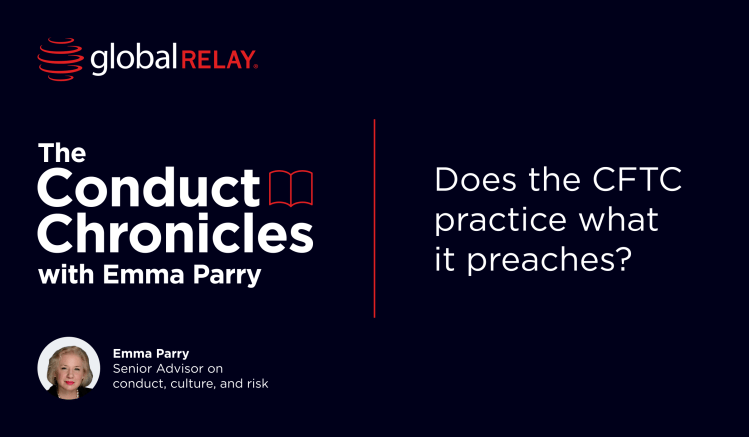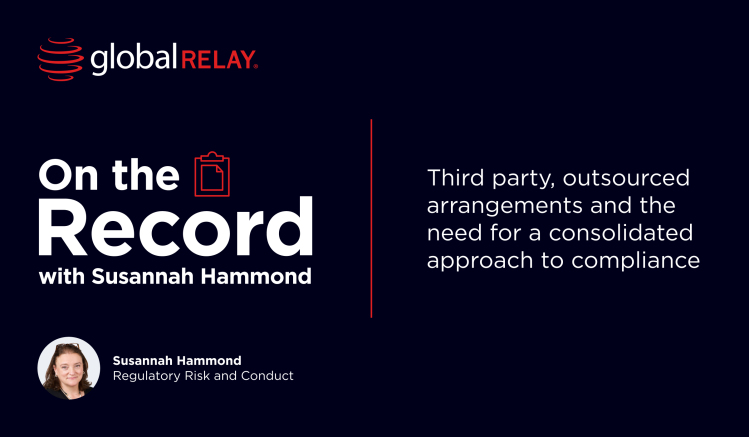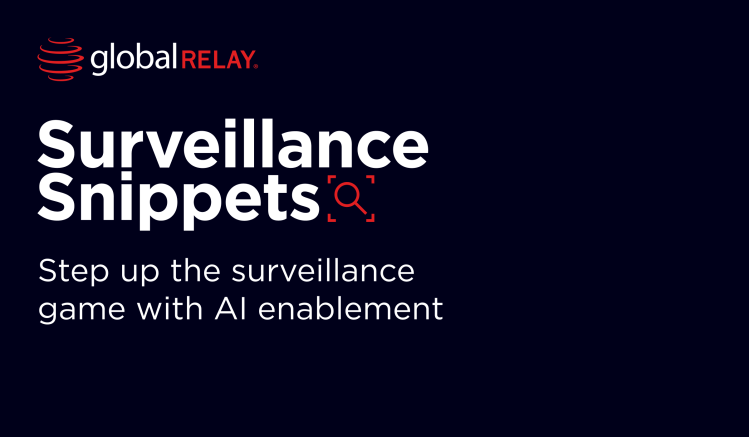FCA puts innovation “at the very heart” of its strategy
Following its international counterparts, the FCA has adopted a reduced regulation ideology. At the center of this is the push for innovation to amplify growth, fight financial crime, improve processes, and attract clients.
FINRA fine shows off-channel comms are still on the record
Despite a global push towards reduced regulation, a recent FINRA-issued fine for off-channel communication shows that recordkeeping and surveillance remain a regulatory priority.
FCA leaves non-financial misconduct nowhere to hide with broader rules
The U.K. regulator has clarified its expectations on bullying and harassment and will extend rules on non-financial misconduct reporting to 37,000 non-bank firms by September 2026.
The Conduct Chronicles – Does the CFTC practice what it preaches?
Emma Parry examines the CFTC's performance, revealing concerns about its conduct in legal proceedings and internal operational failings, highlighting the urgent need for reform and accountability.
Danish FSA finds data completeness failings at three major banks
A thematic study by the Danish financial regulator has identified data completeness and recordkeeping failures relating to voice and electronic communications at Danske Bank, Jyske Bank, and Nykredit Bank.
What’s next for crypto from the SEC’s view
As the SEC wraps up its Crypto Task Force roundtable series, covering topics from blockchain to crypto custody to decentralized finance, has the regulator come closer to defining the future framework for crypto asset regulation?
Third party, outsourced arrangements and the need for a consolidated approach to compliance
Firms must do their due diligence and ensure activities both in-house and outsourced are being monitored to ensure they are compliant.
Surveillance Snippets: Step up the surveillance game with AI enablement
High volumes of data require high-tech surveillance systems to keep pace – which is where AI comes in. How can AI-enablement help firms take their surveillance governance to the next level?
From Instagram grids to behind bars: Finfluencers are under investigation
The FCA is cracking down on finfluencers as firms face growing pressure to closely monitor and regulate their social media promotions.
FCA follows the current of reduced regulation
In a major shift from its former 'name and shame' proposed strategy, the FCA is now taking a collaborative approach with firms in order to encourage economic growth by reducing regulatory burdens.
Regulatory Wrap episode 62: DOJ makes self-disclosure a strategic advantage
In Regulatory Wrap for the week to May 23, Ryan Sheridan uncover how the DOJ’s updated white-collar enforcement plan repositions self-disclosure as a commercial advantage.










